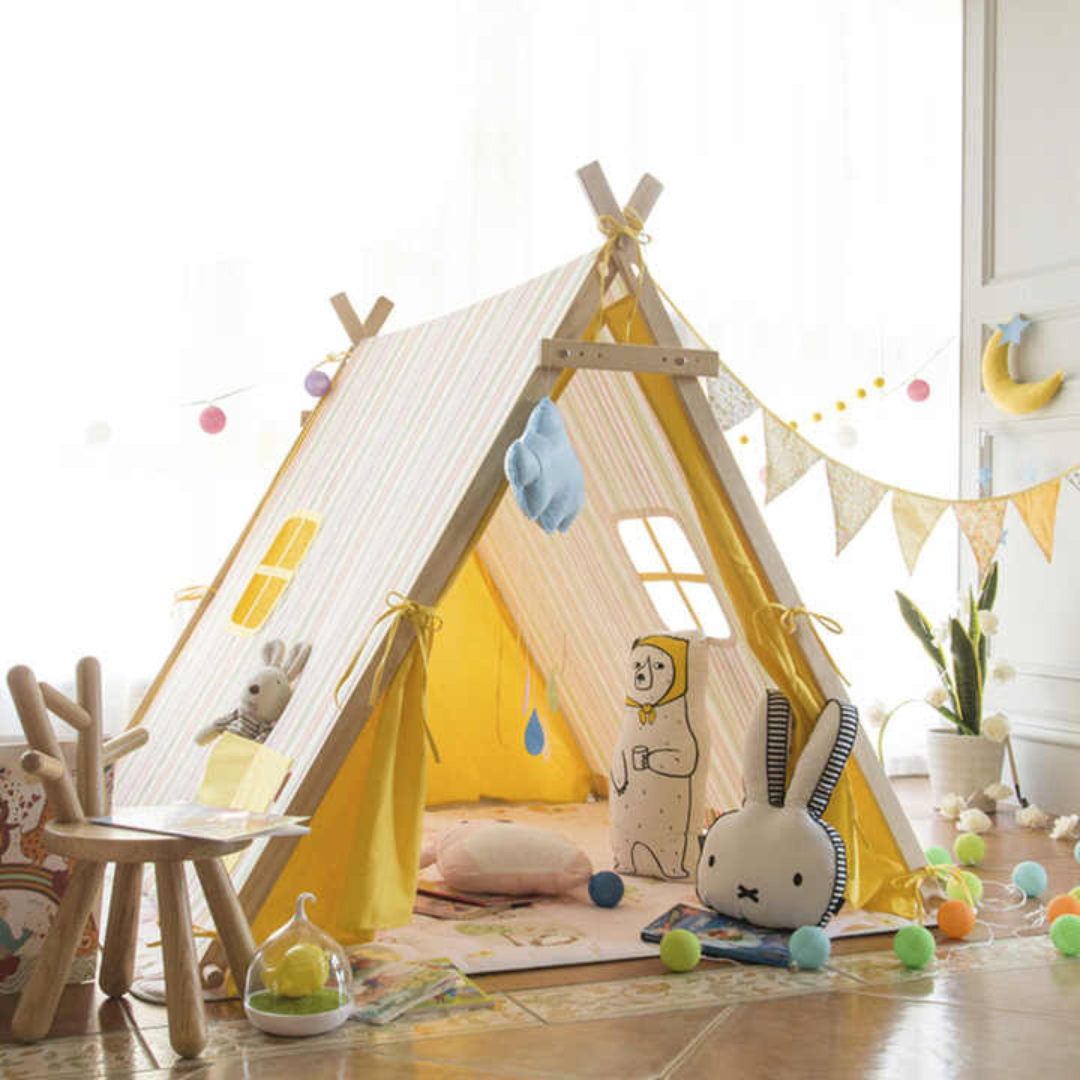Teething is a challenging phase for both babies and parents. While it's a natural process, the discomfort and fussiness that accompany it can be overwhelming. Teethers have become a staple in every parent's arsenal to soothe their little one's aching gums. With a plethora of options available, parents often find themselves torn between different materials. In this blog post, we'll delve into two popular choices: beech and neem wood teethers. We'll explore their properties, benefits, and considerations to help you make an informed decision for your baby.
Understanding Teething
Before we dive into the wood comparison, let's briefly understand the teething process. Teething typically starts around four to seven months, although it can vary from baby to baby. As your baby's teeth begin to erupt through the gums, it can cause discomfort, drooling, irritability, and a decreased appetite. Teethers provide a safe and soothing way to alleviate these symptoms.

Beech Wood Teethers: Nature's Comfort
Beech wood has gained popularity as a material for teethers due to its several desirable qualities.
- Durability: Beech wood is known for its strength and durability, ensuring the teether can withstand the rigors of teething.
- Smooth Texture: The smooth surface of beech wood is gentle on baby's gums, providing soothing relief without causing irritation.
- Sustainability: Beech is a sustainable wood source, making it an eco-friendly choice for conscious parents.
- Neutral Taste: Beech wood has a neutral taste, ensuring it doesn't interfere with your baby's palate.
While beech wood offers numerous benefits, it's essential to choose teethers from reputable brands that adhere to safety standards. Look for teethers that are free from harmful chemicals and finishes.
Neem Wood Teethers: A Touch of Tradition
Neem wood has been used for centuries in traditional medicine due to its antibacterial and anti-inflammatory properties. Its incorporation into teethers has gained traction in recent years.
- Antibacterial Properties: Neem wood contains natural compounds that have antibacterial properties, potentially helping to reduce the risk of infection in baby's mouth.
- Anti-inflammatory Effects: The anti-inflammatory properties of neem wood may help soothe inflamed gums and reduce discomfort.
- Sustainability: Neem is a fast-growing tree, making it a renewable resource.
- Taste: Some babies may find the slightly bitter taste of neem wood unpleasant, but it's generally mild.
It's crucial to note that while neem wood offers potential benefits, there is limited scientific research specifically on its efficacy in teethers. Always consult your pediatrician if you have concerns or questions about using neem wood products for your baby.
Choosing the Right Teether
Selecting the perfect teether for your baby depends on several factors:
- Baby's Preferences: Some babies may prefer the feel of beech wood, while others might find relief from the taste of neem wood.
- Safety: Prioritize safety by choosing teethers from reputable brands that comply with safety standards.
- Durability: Consider your baby's chewing habits and choose a teether that can withstand their enthusiasm.
- Additional Features: Some teethers offer additional features like textured surfaces or water-filled compartments.
Ultimately, the best way to determine which teether your baby prefers is through trial and error. It's essential to supervise your baby while they are using a teether to ensure their safety.
Care and Maintenance
Proper care of your baby's teether is crucial to maintain hygiene and prolong its lifespan.
- Cleaning: Wash teethers with warm, soapy water before and after each use.
- Sterilization: For added peace of mind, you can sterilize the teether according to the manufacturer's instructions.
- Inspection: Regularly inspect the teether for signs of wear and tear. Discard it if any damage is found.
- Storage: Store the teether in a clean, dry place when not in use.
Conclusion
Both beech and neem wood teethers offer unique advantages for soothing your baby's teething discomfort. The choice ultimately depends on your baby's preferences and your personal considerations. By understanding the properties of each wood and prioritizing safety, you can select the perfect teether to comfort your little one during this challenging phase. Remember, every baby is different, so don't hesitate to experiment with different options until you find the perfect fit for your little one.







